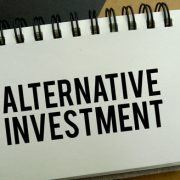Excess Personal Debt Can Hamstring Self-Directed IRA Investors’ Retirement Plans
Making all your allowable contributions to your Self-Directed IRA or other retirement plan is a good start. The more you can put in, the more you may be able to take out of your Self-Directed IRA in the future.
But too many seniors are learning a painful lesson about retirement: If they carry too much personal debt, retiring can feel like swimming against the tide.
According to a recent survey from the American Economic Association, over 7 out of 10 Americans between the ages of 56 and 61 reported being in debt. That is an increase from 56 percent in 1994.
To make matters worse, the average debt balance carried by seniors in this age range has increased substantially: Using constant 2015 dollars, the median debt balance of seniors who carried personal, non-retirement fund debt was $32,700 – up from $6,760 in 1992.
The study’s authors pointed out that these increased debt levels can lead to several severe financial problems among those affected:
- A steady drain on cash flow as those borrower’s struggle to make interest and principal payments.
- The need to extend one’s working life.
- Substantial interest rate risk: Debt service payments increase with each uptick in interest rates, resulting in more pressure on cash flow, or longer repayment periods or both.
- Less ability to help family members in financial need.
- Increased vulnerability to job loss and other economic shocks.
- Pressure to take more in income from retirement funds than may be prudent.
With some 40 percent of single retirees receiving most or all of their retirement income from a Social Security check, excess debt is a particularly acute problem, says study co-author Annamaria Lusardi, the Denit Trust Chair of Economics and Accountancy at the George Washington University School of Business. “More and more, the current generation will have to deal with debt close, and into, retirement,” warns Lusardi. These debt levels contribute to what Lusardi calls “financial fragility.” The more debt you have relative to your asset levels, the more vulnerable you are to economic shocks and setbacks, she says.
Furthermore, the lower your consumer debt level, the more likely it is you will be able to make the maximum contribution to your Self-Directed IRAs and other retirement accounts.
Are you financially fragile?
The study’s authors developed a quick test, so readers can quickly tell if they meet the standard for financial fragility:
- Your total debt to total asset ratio is greater then 0.5 percent.
- You have less than 50 percent equity in your primary residence.
- Your total net worth is under $25,000, or half the median annual income, which represents about six month’s worth of earnings for most people.
If any or all of these conditions apply to you, it is time to get busy. Your chances of a successful and secure retirement may depend on you getting a handle on and reducing or eliminating this debt.
- Get aggressive about paying down credit card balances. Interest rates on credit cards are relatively high, even in today’s low-interest rate environment.
- Call creditors and ask if they would be willing to accept a lump sum at a discount in exchange for ‘settled in full’ status on credit reports. This gets some debt off your balance sheet and may help boost your credit score as your debt utilization ratio falls. This in turn, may help you pay off debt that much faster. Keep in mind that forgiven debt is generally taxable as ordinary income.
- Get a free copy of your credit report from com. You can do this at each major credit bureau once per year, and whenever you are declined for a new credit offer. Check your report, and challenge inaccuracies.
- Sell assets to pay off debt. For example, selling assets in money markets and CDs may not be returning anywhere close to the interest rate you are paying on credit cards or other high-interest debts.
- Be mindful of tax consequences. You may want to balance assets sold at a loss against assets sold at a gain to minimize capital gains taxes.
Interested in learning more about Self-Directed IRAs? Contact American IRA, LLC at 866-7500-IRA (472) for a free consultation. Download our free guides or visit us online at www.AmericanIRA.com.




